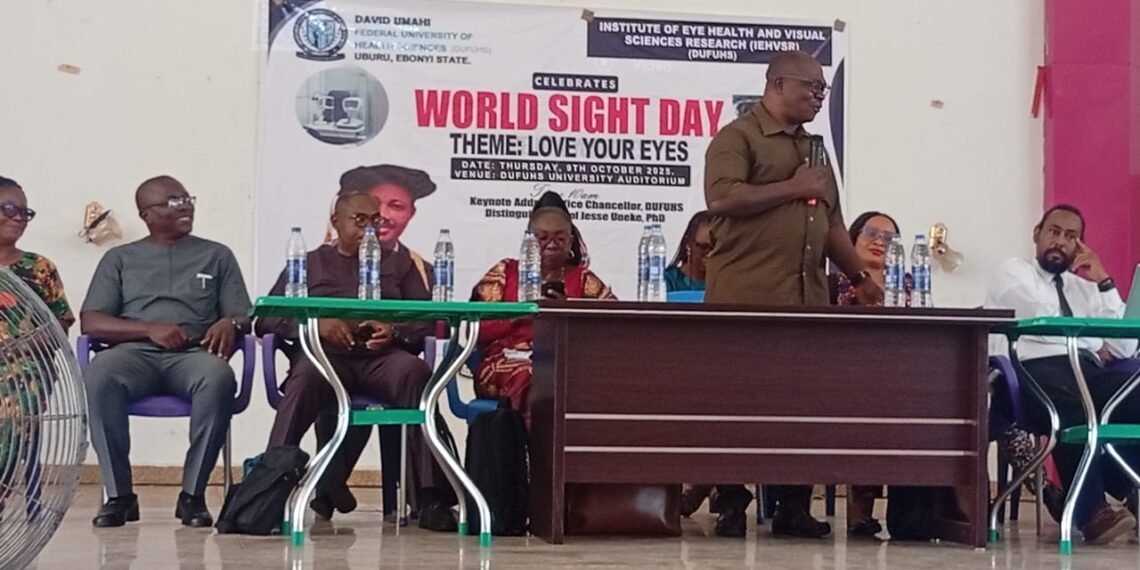A university don, Prof. Chimdi Chuka-Okosa, has identified refractive error, glaucoma, diabetes, and others as the major causes of visual impairment in society.
Prof. Chuka-Okosa therefore advocated for regular eye check-ups to prevent visual impairment, stating that one out of seven persons in the world is battling with visual impairment, saying that good vision is essential for security.
Chuka-Okosa, a professor of ophthalmology at the University of Nigeria, Nsukka, stated this on Tuesday, during the celebration of 2025 World Sight Day at the Institute of Eye Health and Visual Sciences Research (IEHVSR), David Umahi Federal University of Health Sciences, Uburu, Ebonyi State.
Speaking on the theme: “Love your eyes,” Prof. Chuka-Okosa urged participants to love their eyes and take good care of them, stressing that good vision is essential for security, enhances economic well-being, and academic performance.
Read also:
- Reps member, indigenes move to revive moribund healthcare centre in Abia community
- Coalition demands immediate release of detained social critic “Ijele Speaks,” raises alarm over deteriorating health
- Edo condemns 7 -day warning strike by medical, health workers
Recommending solutions to visual impairment, Prof. Chuka-Okosa called for regular eye check-ups to avoid refractive errors, eating a balanced diet, engaging in exercise, avoiding wrong prescriptions, and the use of breast milk to cure eye issues.
Speaking on the role of pathologists in the prevention of avoidable blindness due to neglected tropical diseases, a consultant pathologist, Dr. Kiran Ekochin, explained that the contributions of pathologists to patients’ healthcare are numerous.
He listed them to include accurate diagnosis/patient quality care, prognosis and prediction, multidisciplinary patient treatment approach, multidisciplinary tumour board, morbidity and mortality meeting, disease monitoring and treatment response assessment, cancer screening and research, among others.
He noted that the World Health Organisation (WHO) recognises 21 NTDs and has a roadmap to control and eradicate these diseases by 2030.
Delivering a lecture on: “The critical role of children’s vision and eye health in ensuring readiness for learning, development, and lifelong well-being,” Dr. Jennifer Obani from the Department of Optometry, DUFUHS, said vision is both an eye and brain function, adding that the eye develops through the embryonic stage to birth visual acuity, contrast sensitivity and colour vision are not fully developed until about five years.
She explained that visual context develops rapidly in early childhood.
Dr. Obani recommended pediatric eye examination at birth, vision screening before school entry, and teachers’ training to recognize visual issues, among others.
Earlier, the Vice Chancellor of David Umahi Federal University of Health Sciences, Uburu, Prof. Jesse Uneke, appreciated the participants for their active roles and contributions to ensure quality healthcare delivery in the country.
He said that the Institute for Eye Health and Visual Sciences Research has offered free eye treatment to 2,412 patients.






